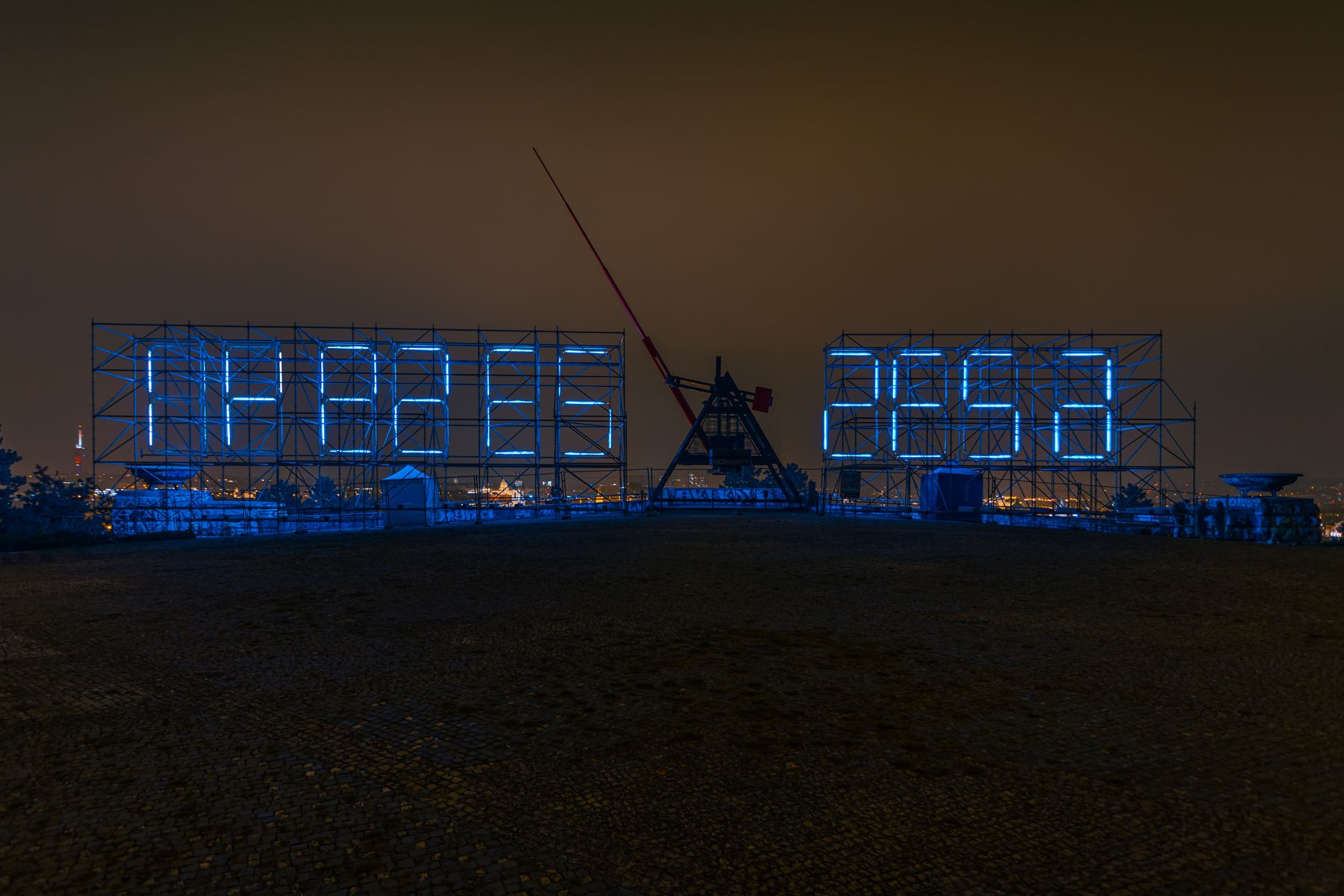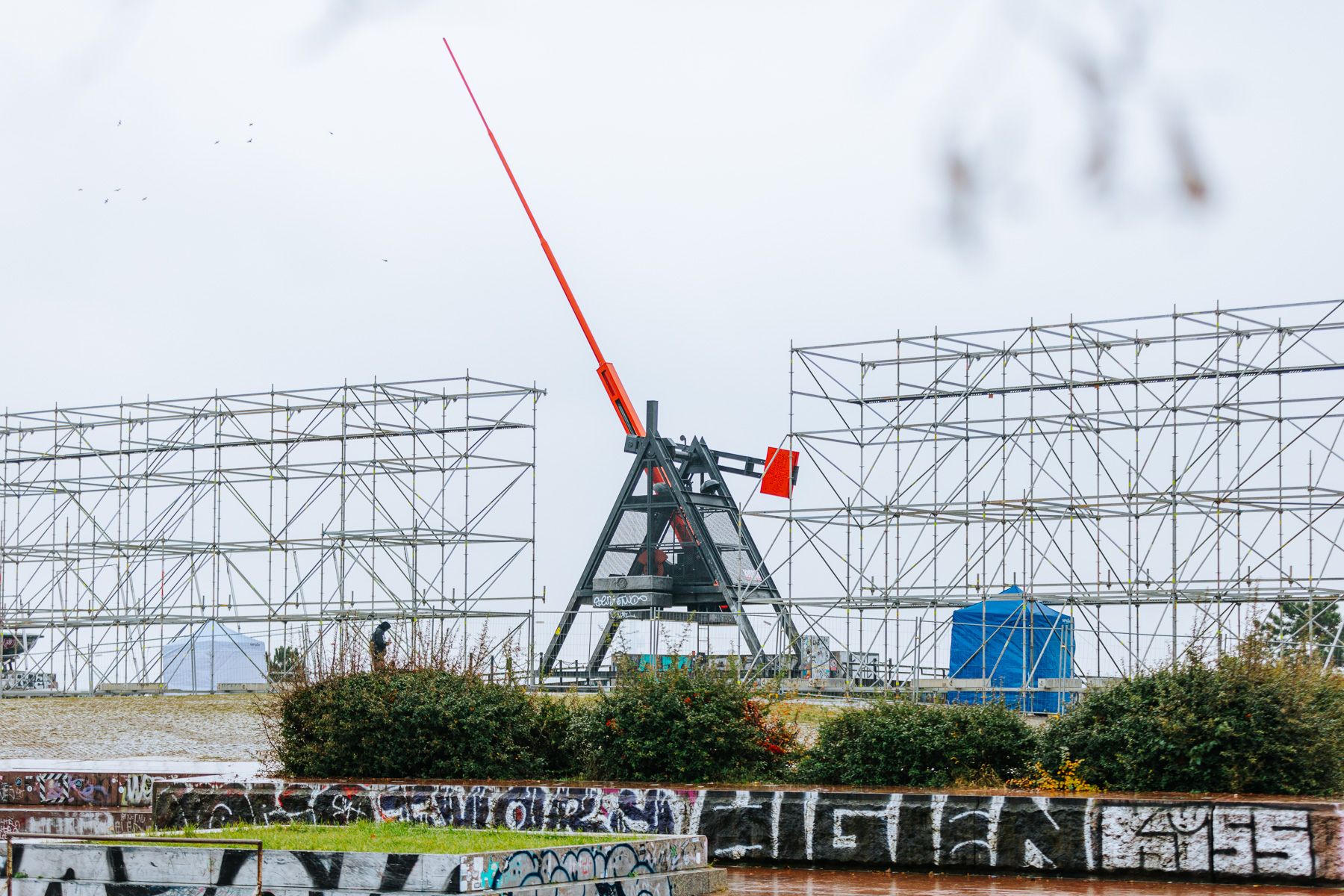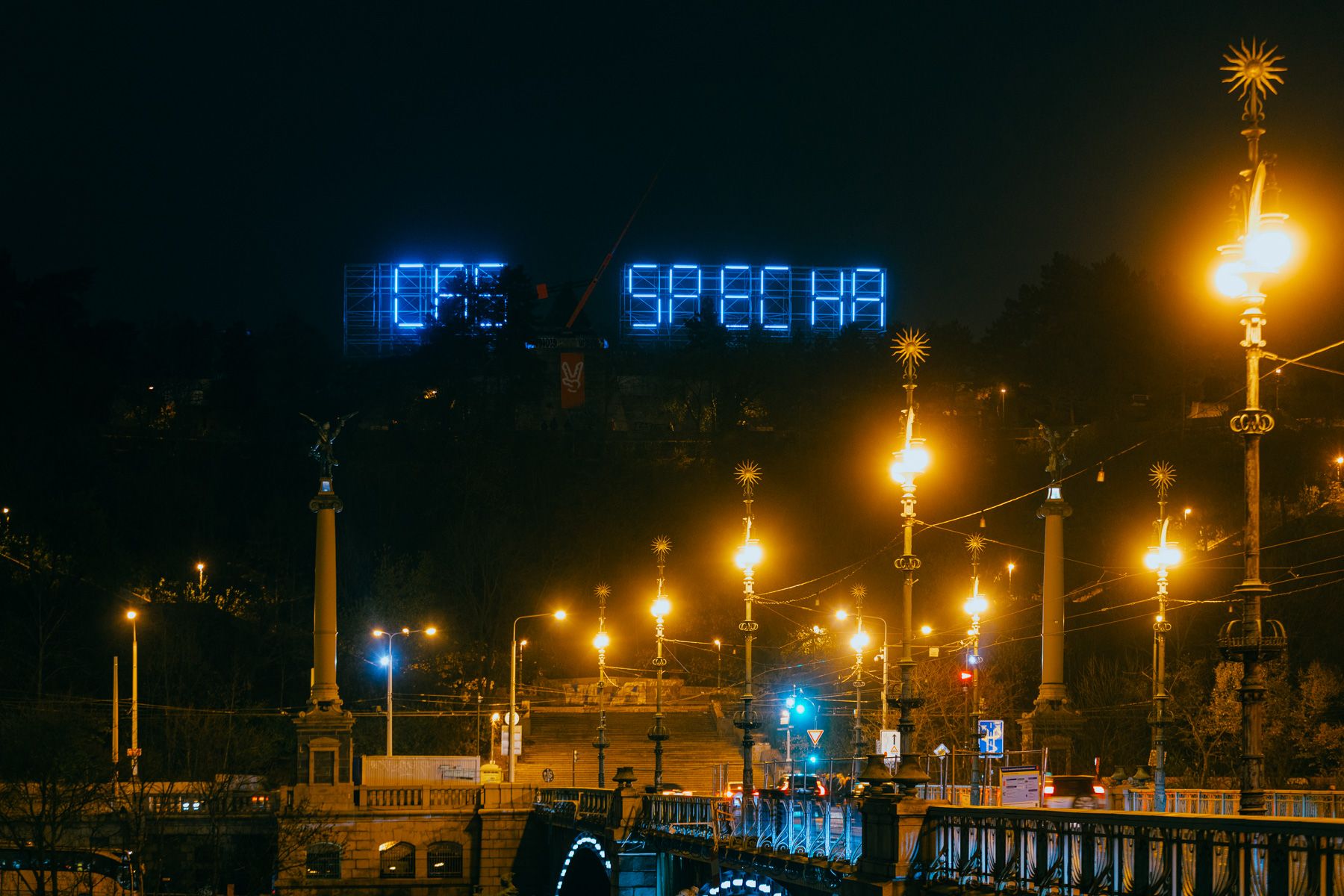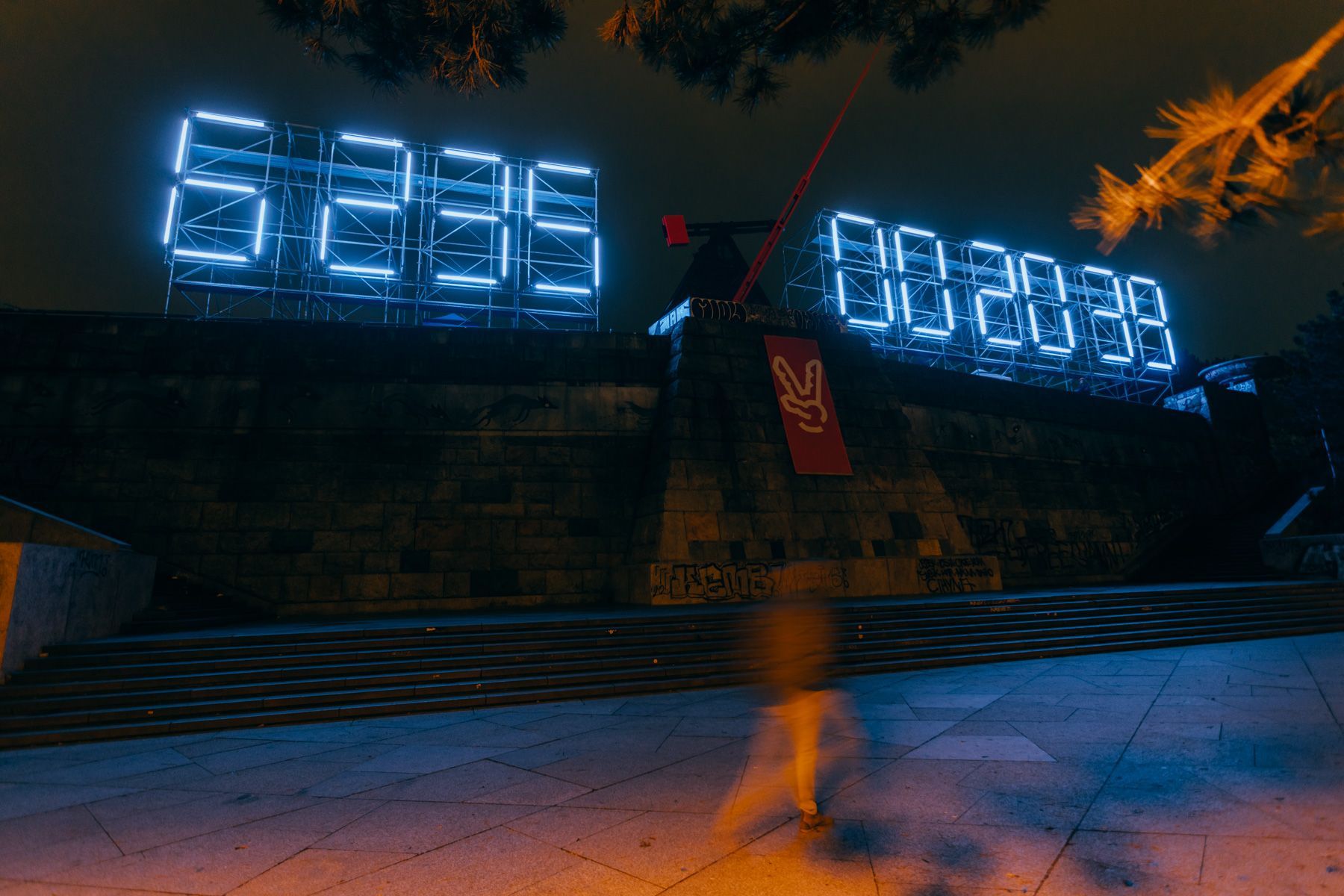In Prague’s Letná park a clock counts down to the point of no return of irreversible climate change. The 8-meter-high, 35-meter-wide clock stands beside the Metronome, on the pedestal where the statue of Stalin once stood.
The clock erected by the organization behind Festival svobody (Freedom Festival), who are also responsible for the November 17th memorial day of the fight for freedom and democracy, will be on display until December 12th. The organization’s aim is to besides honoring the memory of the Velvet Revolution, remind the citizens—including politicians—that climate change poses a real threat to the future of Czechia. According to researchers, there are less than seven years left until the planet’s average temperature rises by 1.5 degrees Celsius, from where there will be no return. The countdown started on the 30th of November with 6 years, 235 days, and 53 minutes.



Source: expats.cz | Festival svobody

Polish company designed the stadium seats for the World Cup in Qatar

An imaginary house inspired by the winter wonderland










